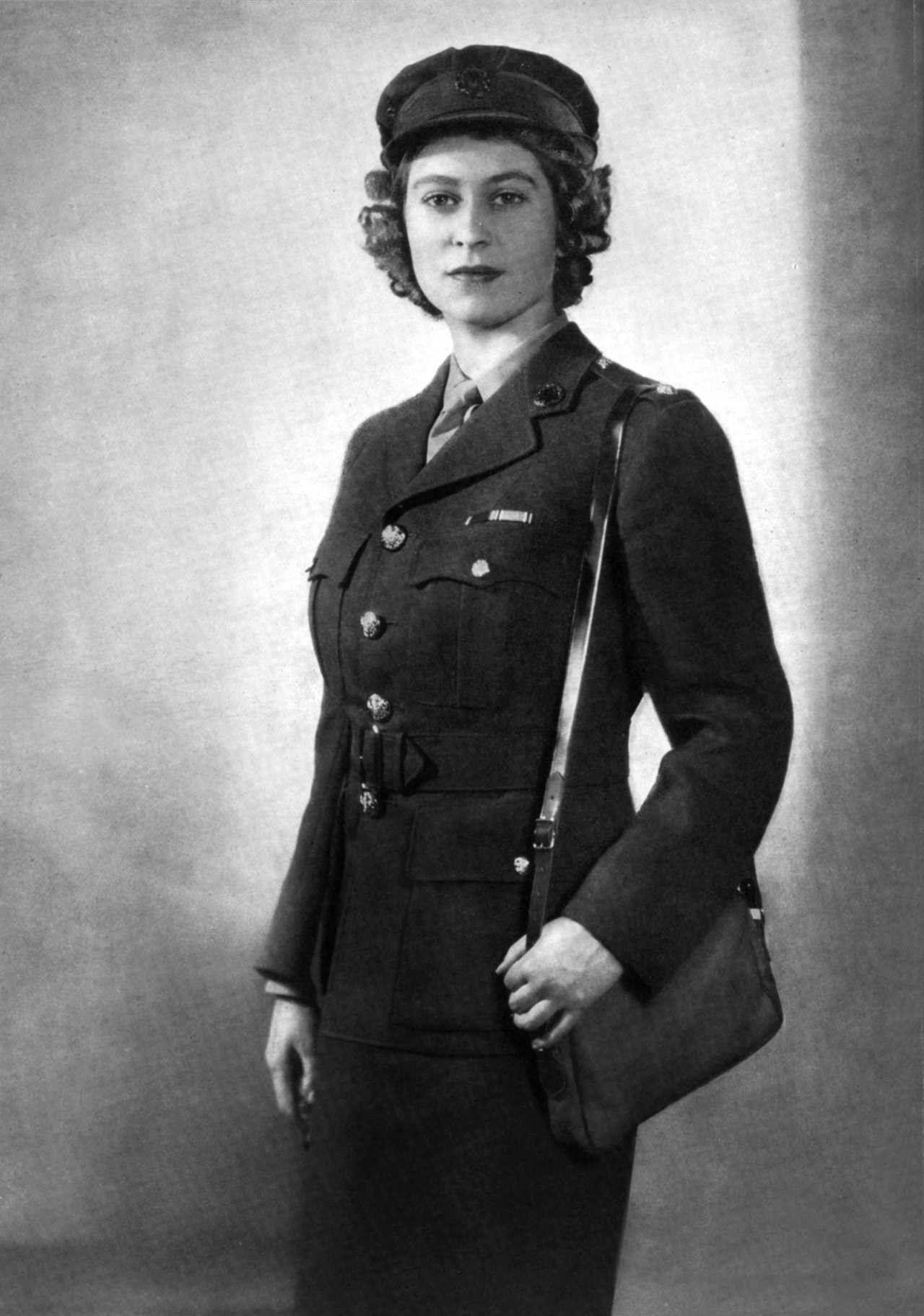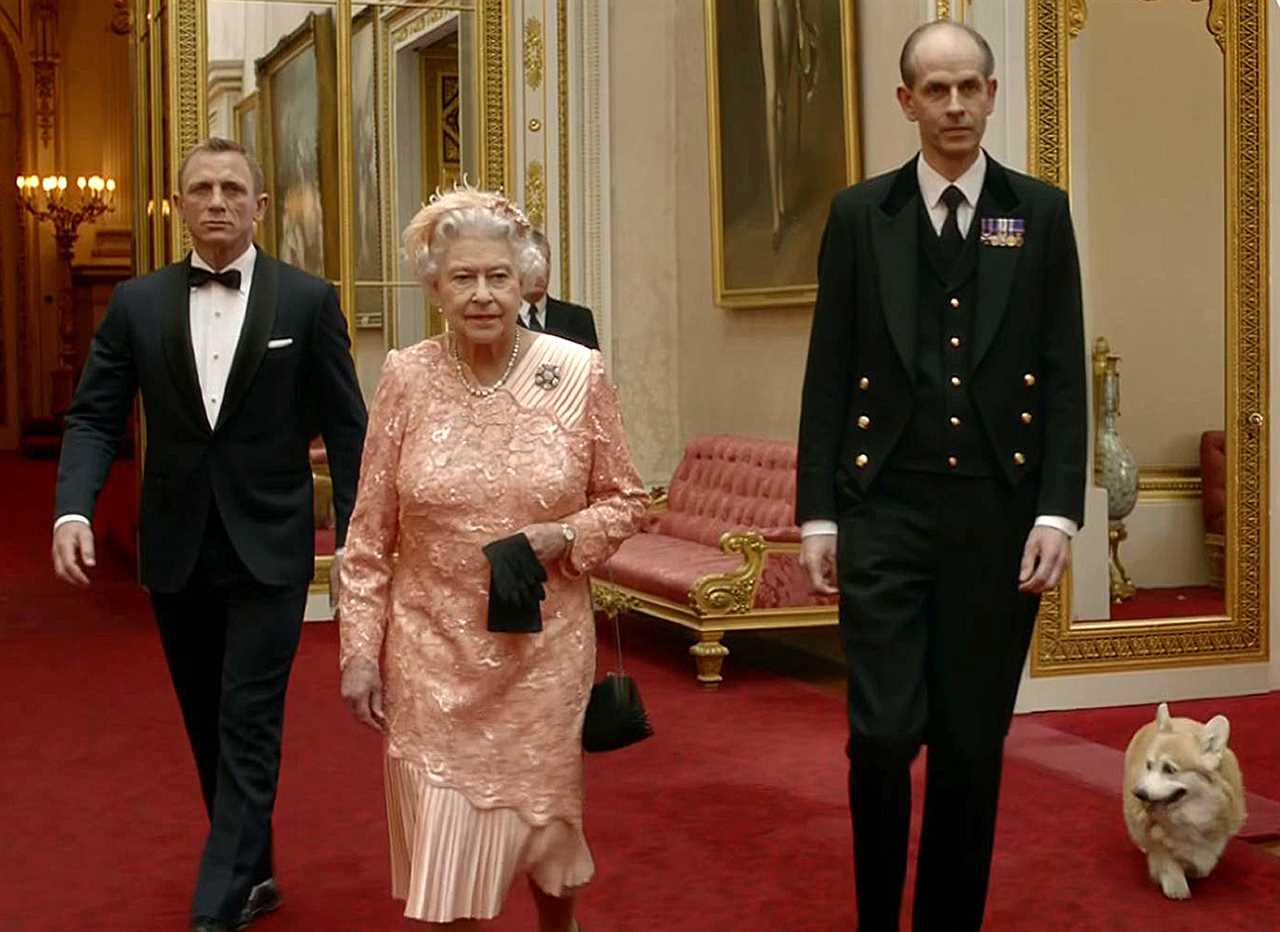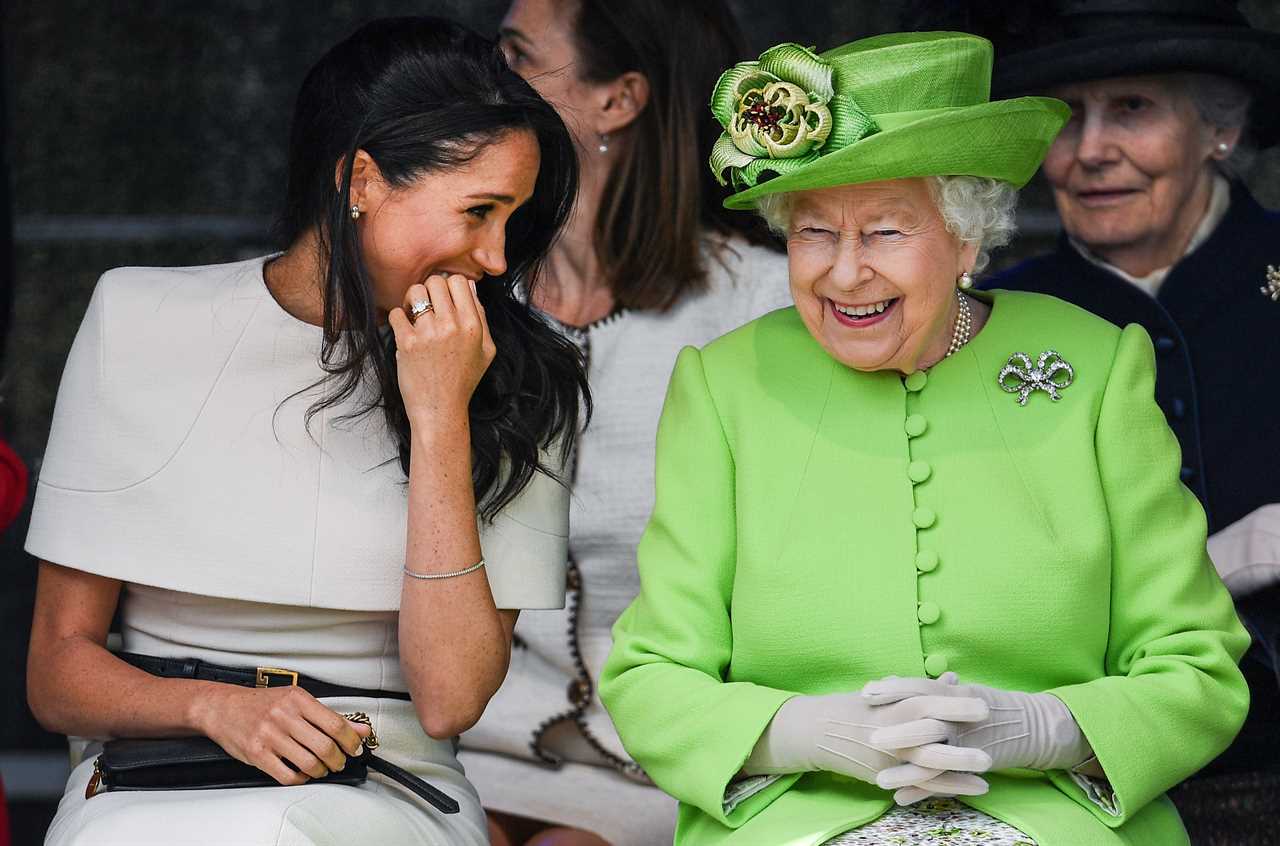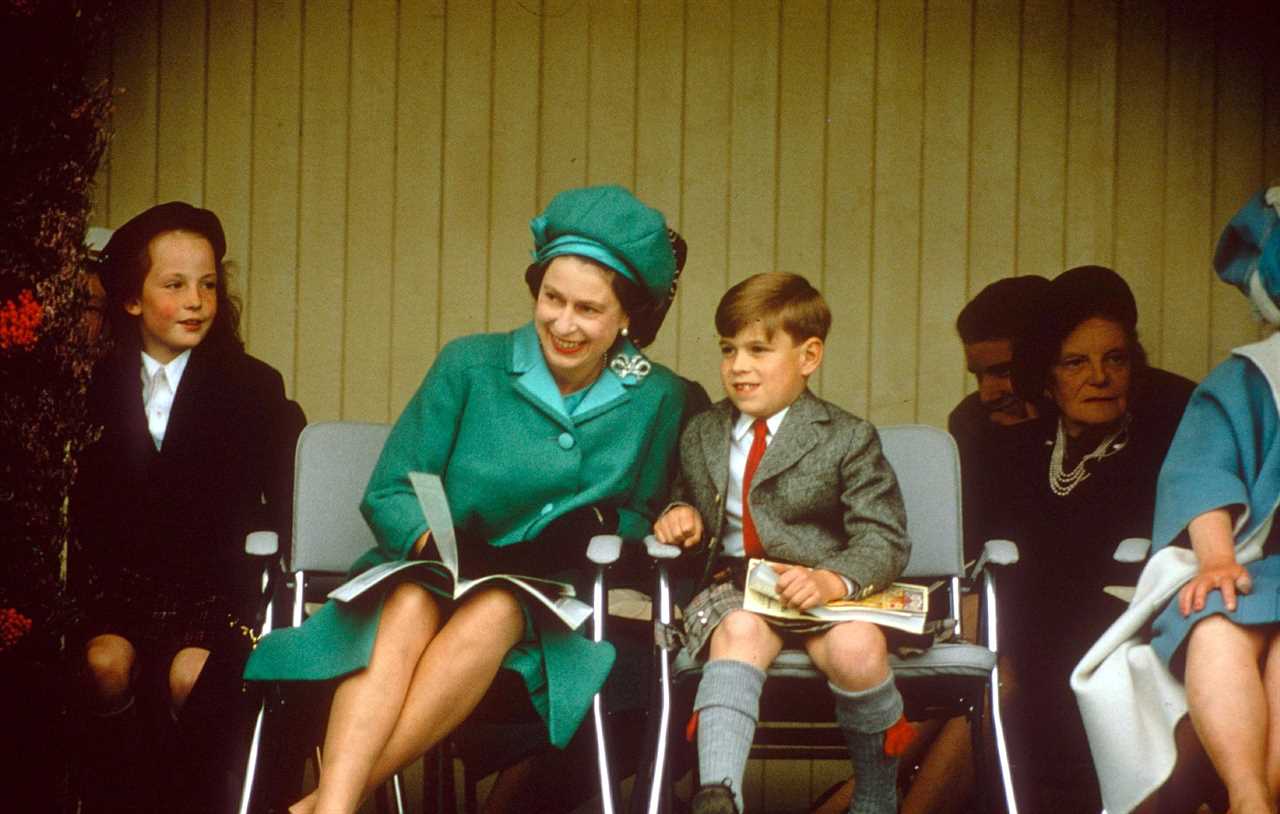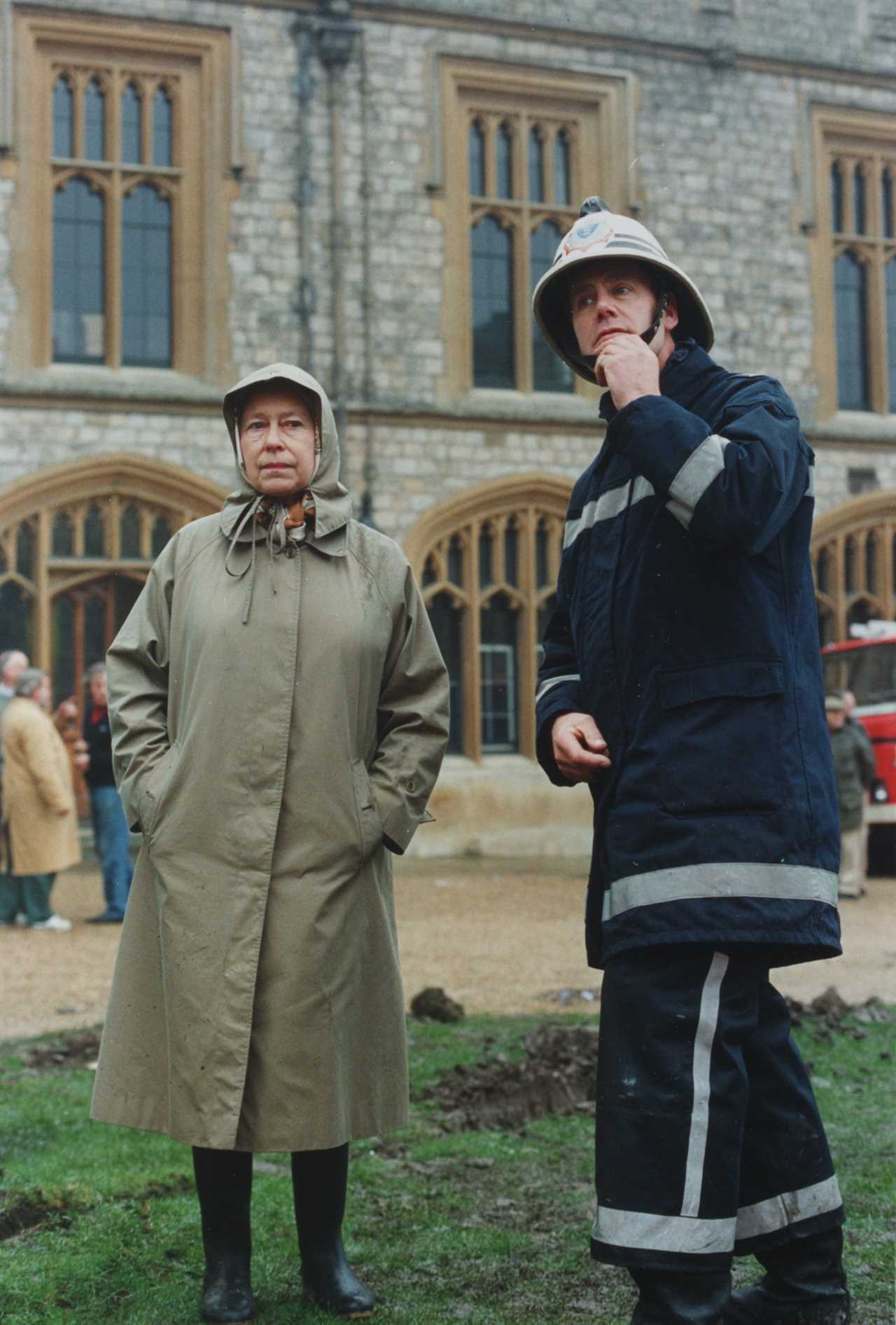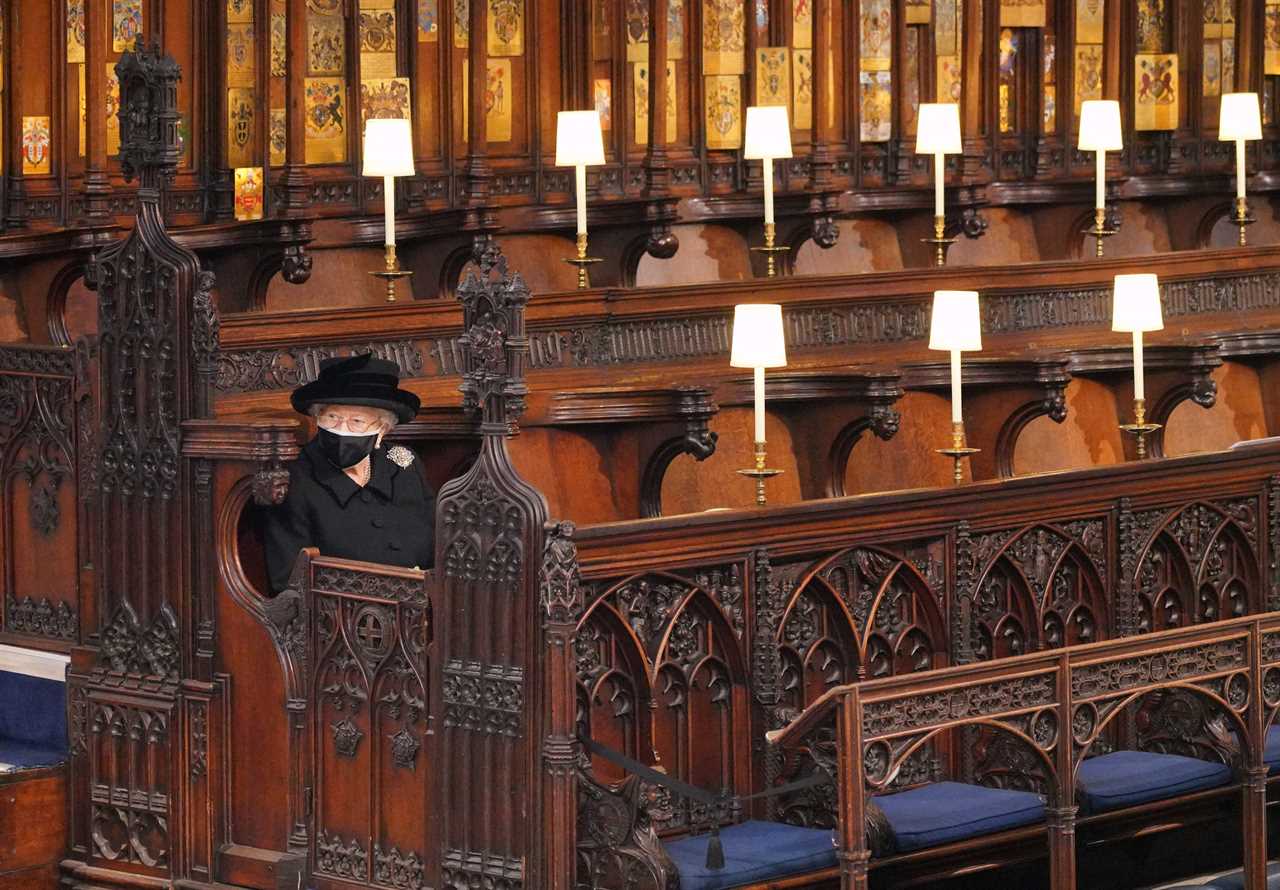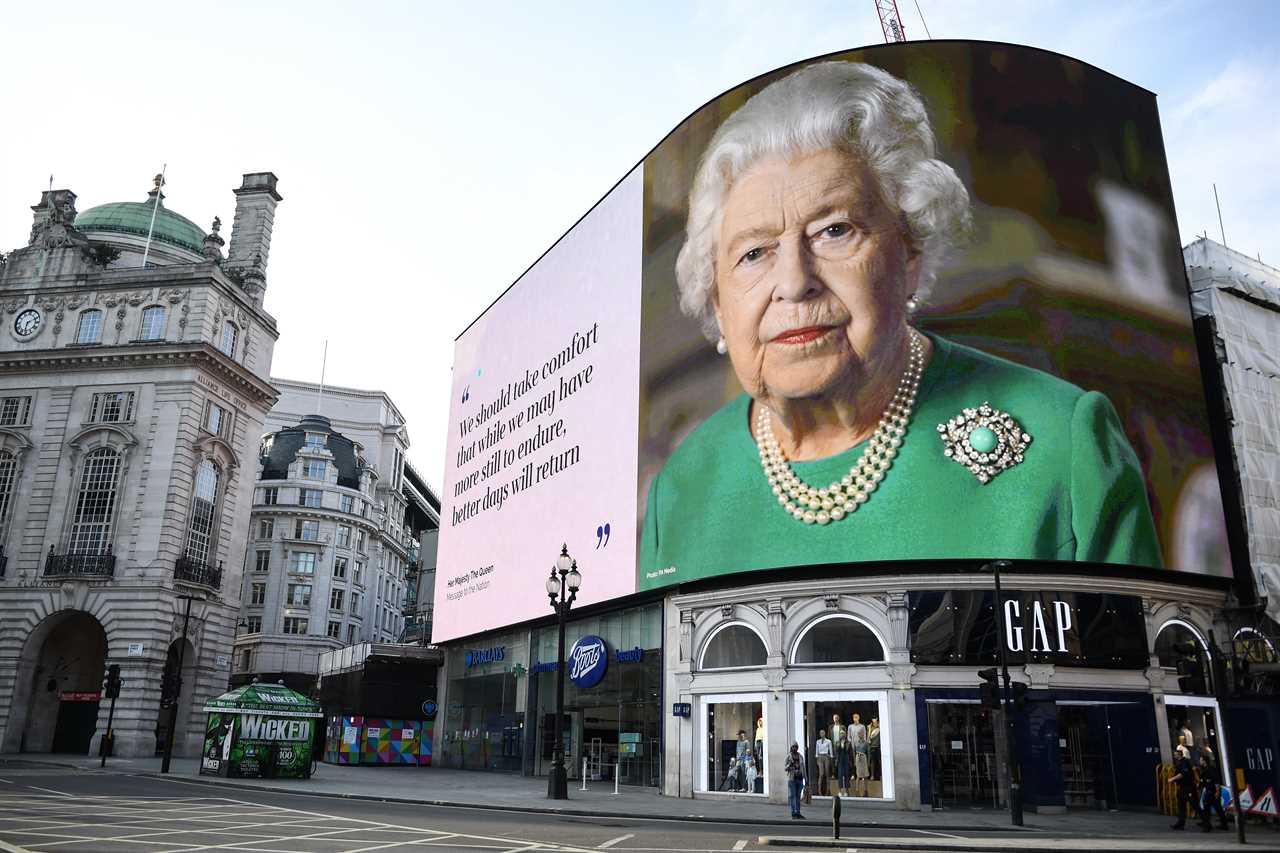TOMORROW the sun will rise on history as the Queen celebrates her Platinum Jubilee – an unprecedented, and unlikely to ever be repeated, 70 years on the throne.
And her people will celebrate with her. Because Queen Elizabeth II, at 95, is now something far more than the longest-reigning and longest-living monarch in our nation’s history.
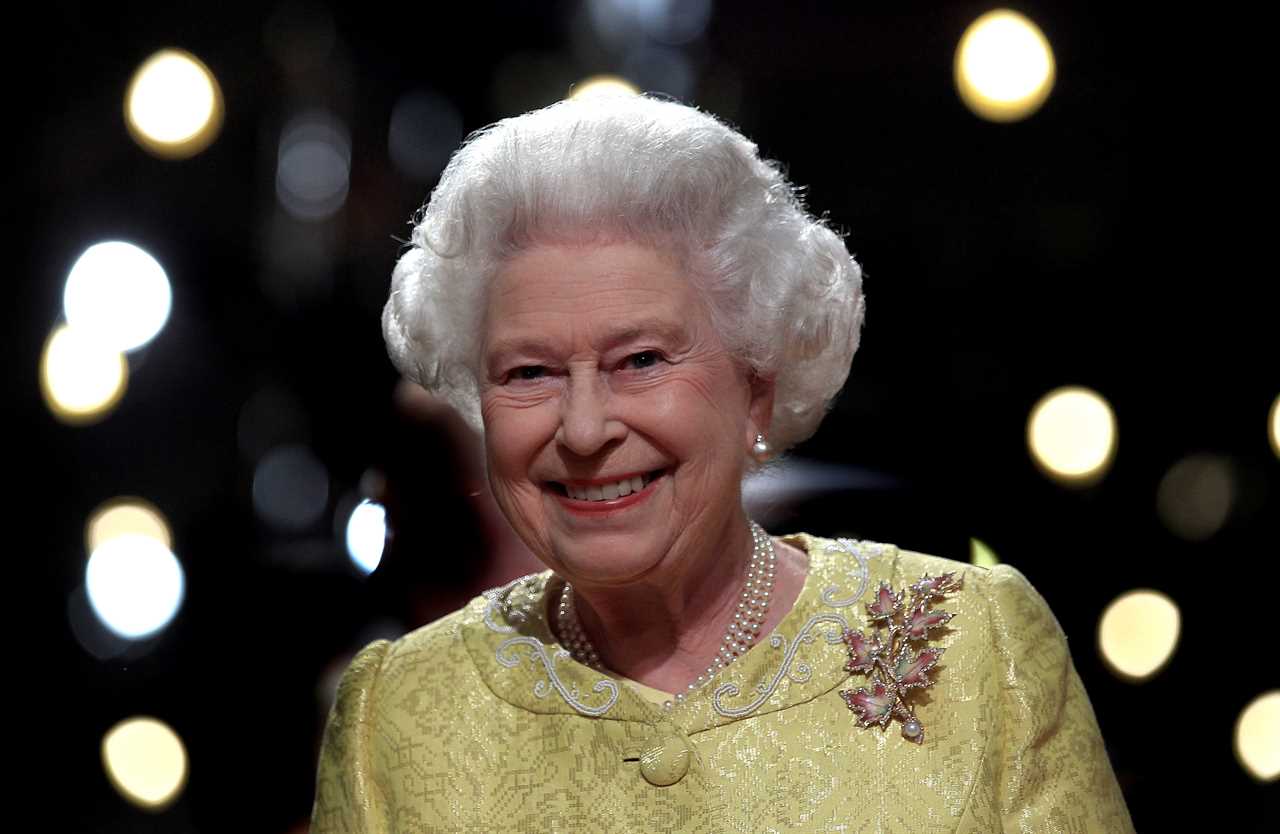
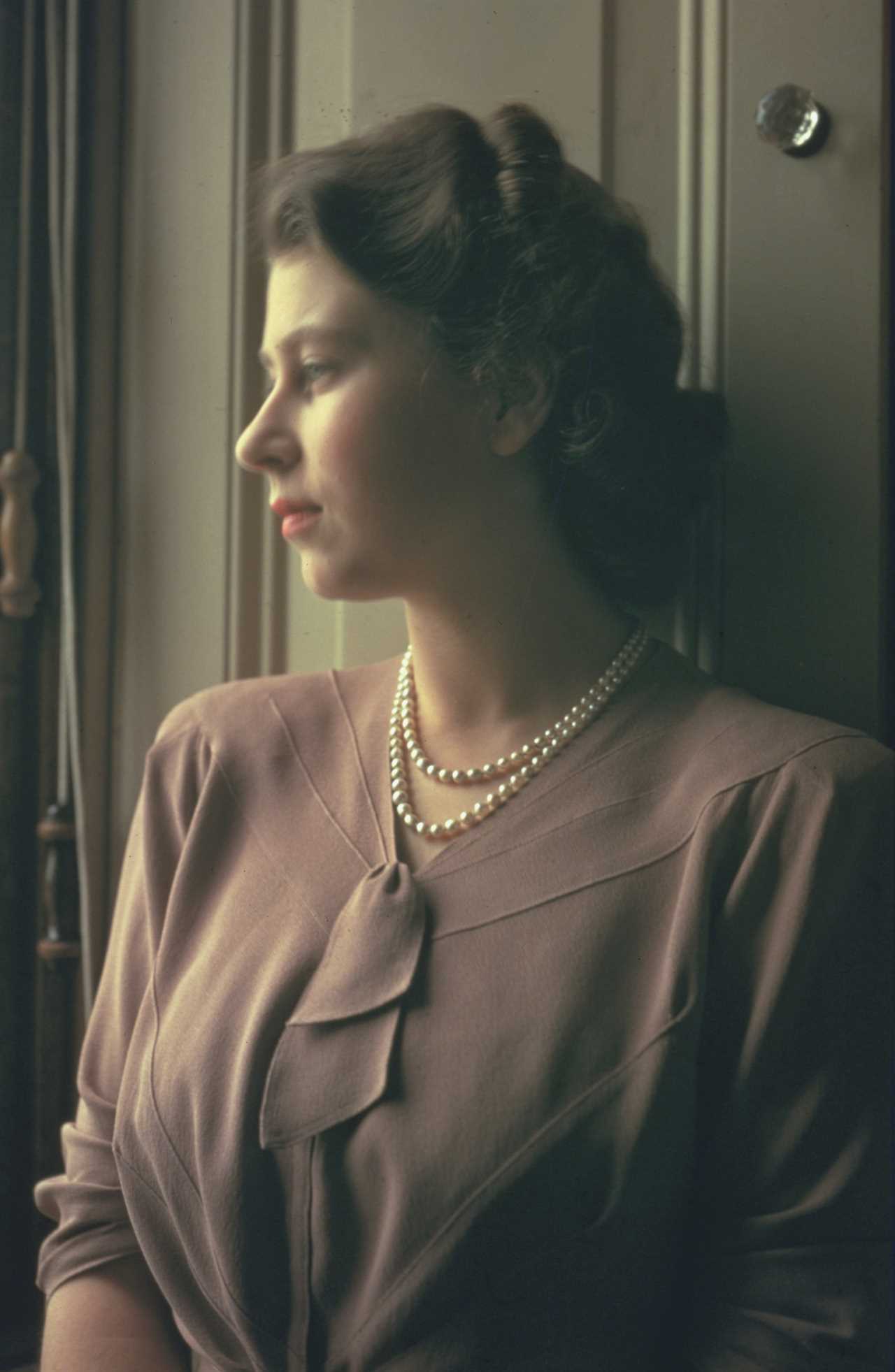
She is the most loved.
And after the dignity, grace and quiet courage she has shown over the past two years — hard times that have battered both her country and her family — she has never been more loved than she is today.
Thirty years ago, the Queen gave a speech at London’s Guildhall to mark the 40th anniversary of her accession to the throne and famously described 1992 as her “annus horribilis” — a horrible year.
Older readers may recall the sad and tawdry doings that made that particular annus so horribilis.
Prince Charles and Diana had announced their separation. Princess Anne divorced Captain Mark Phillips. Sarah Ferguson left Prince Andrew and was later seen having her freckled toes licked by her chrome-domed American lover.
And Windsor Castle burned down. But if 1992 was a rotten year for the Queen, then 2021 was surely the worst year of her long reign.
From their Californian mansion, runaway royals Meghan and Harry spat poison at the family they had left behind, even as they clung to the titles.
Prince Andrew stood accused of sexual assault by one of the victims of billionaire paedophile Jeffrey Epstein. And in April, after 73 years of marriage, the Duke of Edinburgh died at the age 99.
Any one of these traumas could have crushed someone half the Queen’s age.
But through it all, Her Majesty acted with grace and dignity. She never faltered.
Somehow the Queen has handled it all without resorting to the thin-skinned belligerence that comes so easily and naturally to the younger royals.
When Harry and Meghan seethed that the Royal Family was cold, uncaring and a safe space for an unnamed racist who wondered aloud — we were informed, as Oprah’s jaw fell open with shock — about the colour of Meghan and Harry’s firstborn, Buckingham Palace responded with a polite yet devastating “recollections may vary”.
Meanwhile, Andrew has been ruthlessly removed from royal duties, stripped of his gaudy titles and packed off to the palatial shadows to contemplate his fate.
And in what may well be the defining image of her long reign, when the Queen mourned her husband at his funeral in Windsor Castle she sat heartbreakingly alone and socially distanced from the rest of her family — a small, dignified figure in black, bent by grief but following the same strict Covid regulations being followed by the rest of her people (if not the 24-hour Conservative Party people in Downing Street).
It is mindblowing what the Queen has had to deal with in recent years.
Prince Andrew is currently embroiled in the seediest royal sex scandal since Henry VIII first flashed his codpiece at Anne Boleyn.
The Oprah interview, we now know, was hardly a one-off — Meghan and Harry are attempting to do to the royals what the Luftwaffe failed to do in 1940.
And the Queen must face the twilight years of her reign without her beloved Philip by her side.
Yet she has only grown in stature during these hard times.
After the EU referendum of 2016, when a divided kingdom seemed bent on tearing itself apart, she was a symbol of national unity — living proof that our nation would ultimately never come apart.
But in the past two years, her dutiful, dignified presence has become more important than ever. Her response to the pandemic has been nothing less than inspirational.
‘SHE CONNECTS US TO THE BEST OF OURSELVES’
She gave two televised speeches within weeks of each other in 2020 — her coronavirus address in April and another to mark the 75th anniversary of VE Day in May.
In both of those astounding, four-minute addresses, the Queen offered this great consolation — that the people who endured, sacrificed and ultimately triumphed in the War were the same people who would endure, sacrifice and ultimately triumph in the Covid pandemic.
“When I look at our country today, and see what we are willing to do to protect one another, I say with pride that we are still a nation those brave soldiers, sailors and airmen would recognise and admire.”
This is her genius and her great gift, and the key to understanding why the Queen is so loved. She knows us. In her words and in her presence, she made the past and the present, and indeed our future, seem indivisible.
And this is why the Queen matters. She connects us to the best of ourselves and the best of our national story.
Unlike every other major member of the Royal Family, including the late Prince Philip, she has never been interviewed.
There was never an Oprah or Dimbleby or Bashir to spin her side of things.
“Never complain, never explain,” has been her motto when the tide of public opinion has run against her, such as during the period around the death of Princess Diana.
But when the Queen has chosen to address her people, she has inevitably been word perfect.
Those of us born since the Second World War had no experience of our lives being tossed and turned by great global events beyond our control.
But as a teenager the Queen proudly wore the khaki uniform of an officer in the Women’s Auxiliary Territorial Service. And in the pandemic she has drawn on her experience of growing up in wartime.
She connects us to our past, to the generations who went before us, who sacrificed much — and sometimes sacrificed all — for the freedoms and peace we take for granted.
“Those who come after us will say that the Britons of this generation were as strong as any,” she said in her address to a nation reeling from coronavirus in April 2020 — a deliberate echo of wartime resilience and resolve that harked back to our finest hours.
“We will meet again,” she said, a brilliant sampling of the Vera Lynn song, that wartime prayer. “We will be with our friends again, we will be with our families again, we will meet again.”
Twenty-four million watched this softly spoken woman give hope in the darkness — more than would sit still for a World Cup final.
She never talks for much more than four minutes but has the power to be unbearably moving. “Our streets are not empty,” she said in her speech on the 75th anniversary of VE Day in May 2020, as lockdown bit and she spoke from the White Drawing Room at Windsor Castle. “They are full of love.”
And grown men wept.
The Queen does not say much, but when she speaks, she says it all.
IN a digitally connected society that runs off at the mouth constantly, she is as tight-lipped as a Clint Eastwood cowboy, only speaking when she has something to say.
And when sat alone at Philip’s funeral, she told us all we will ever need to know about service, duty and doing the right thing without saying one word.
It has transpired that politicians who made the Covid rules believed those rules did not apply to them. But our Queen expected no special favour.
She has shown us the meaning of duty, service and patriotism. While other members of the Royal Family have acted like spoilt, entitled toffs, she has somehow kept her feet on the ground, despite being the most famous woman on the planet.
She came early to the throne — decades earlier than she was expecting — and has stayed perhaps far longer than anyone could ever have imagined.
On February 6, 1952, the 25-year-old Princess Elizabeth was in Kenya with her husband when news arrived that her father, King George VI, had died at the age of 56.
The pomp and ceremony of her Coronation in Westminster Abbey was still more than a year away. But she became Queen immediately, the moment her father died far too soon.
The unexpected, early accession has shaped her life, and in turn her calm, quiet, graceful presence has shaped our national story. Unless you are well over the age of 70, the Queen has always been there, a constant presence.
‘SHE REMAINS A MYSTERY, AN ENIGMA’
As a fresh-faced monarch with Winston Churchill, her first Prime Minister, by her side, as devoted and doting as an ancient bulldog.
Giving The Beatles their MBEs and Bobby Moore the World Cup. Half a century later, walking with Daniel Craig’s James Bond by her side to open the London 2012 Olympics. Knighting Sir Tom Moore, the other great hero of the pandemic.
And speaking to us as the grandmother of the nation, in the darkest days of her reign, with a simple yet profound message: We are all that we once were, and our nation is unchanged, and I promise you that we will meet again.
Her image is seared into the national consciousness. Her face is as familiar as the faces of our own family. We have seen actresses try to capture her essence at every stage of her life.
And yet we do not know her. She remains a mystery, an enigma, never letting sunlight in on the magic. We do not know what she really thinks about the great issues of the day — or even the turmoil inside her own family.
Harry and Meghan, on the other hand, are the grandmasters of verbal diarrhoea — a thought cannot enter their thick, empty skulls without them wanting to share it with the world. The Queen is the opposite.
We do not know what she thinks about her country leaving the European Union, or Scottish Independence, or one of her sons hanging out with a billionaire paedophile.
Her Majesty is not big on sharing her truth. It is impossible to imagine her pouring her heart out to Oprah Winfrey, James Corden or some other super-annuated sycophant.
She is one of the last survivors of a better time — kinder, more stoic, possessed of a softly spoken courage, and when we look at her we all see the shadow of a great-grandmother or grand-mother or mother.
With her hats and her handbags and her careful hairdo, I can’t help but be reminded of my mum, who was born just a few months and a few miles away from the Queen, and like her was a girl at the start of the war and a young woman at the end.
For most of us, the Queen has always been here, and it seems unimaginable that there will come a day when she is not.
Even if they turn out to be truly great monarchs, loved by their people, King Charles III — and later King William V and later still King George VII — can never mean all the Queen has meant.
She has lived in palaces all her life but has not become spoilt. She has never thrown a tantrum or felt the need to raise her voice, or land a deal with Netflix.
Born into that world of unimaginable privilege, she has retained a humility and humanity that has served her, and us, so well. She is the ultimate example of soft power in action.
In a bolshy, argumentative democracy like the UK, you would imagine that republicanism — the belief we would be a healthier, happier land without a monarchy — would have at least some advocates.
But the Queen is the national symbol we can all unite around. And I speak as someone who wore a God Save The Queen T-shirt and hung out with the Sex Pistols during the Silver Jubilee of 1977.
But after 70 glorious years, Ma’am, you have made monarchists of us all.
